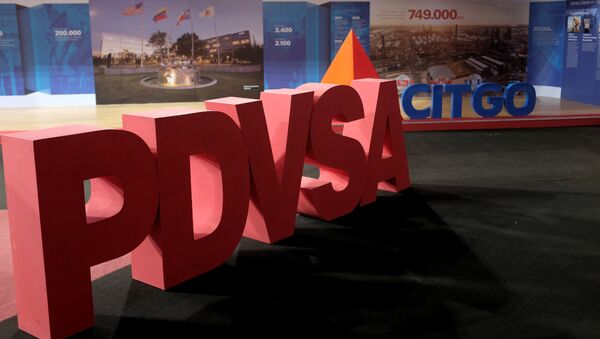The United States has extended the deadline for investors to cut ties with Venezuela's Petroleos de Venezuela, S.A. (PDVSA) until May 10, the Treasury Department's Office of Foreign Assets Control (OFAC) said in a notice on its website on Friday.
READ MORE: US Distancing Itself From Future Energy Prospects — Venezuelan PDVSA
"OFAC is extending the expiration date of provisions relating to the wind down of certain financial contracts or other agreements involving, or linked to, the bonds listed on the Annex to General License 3D or to certain Petroleos de Venezuela, S.A. securities," the notice said. "This authorization is valid through 12:01 a.m. eastern daylight time, May 10, 2019."
The provisions allow for limited transactions with PDVSA before US sanctions on the Venezuelan oil company come into full effect. Companies that continue to do business with PDVSA after the deadline risk US sanctions. The previous deadline was March 11, 2019.
READ MORE: Venezuela to Move PDVSA Office to Moscow From Lisbon — Vice President
The United States has imposed numerous rounds of sanctions on Venezuela. In January, Washington blocked $7 billion in assets belonging to PDVSA. Venezuelan President Nicolas Maduro said the restrictions were tantamount to an illegal seizure of the country's sovereign assets.
The political crisis in Venezuela escalated in late January, when opposition leader Juan Guaido declared himself to be the country's interim president. Maduro, who was sworn in for his second presidential term earlier that month, qualified Guaido's move as an attempt to stage a coup orchestrated by Washington.
The United States immediately recognized Guaido, and many of its allies followed suit. Russia, China, Mexico, Turkey and a number of other states have voiced their support for the Maduro government as Venezuela’s legitimate authority.





